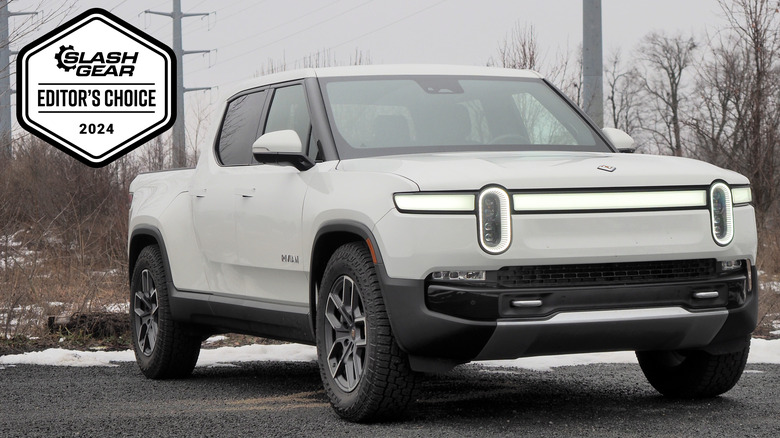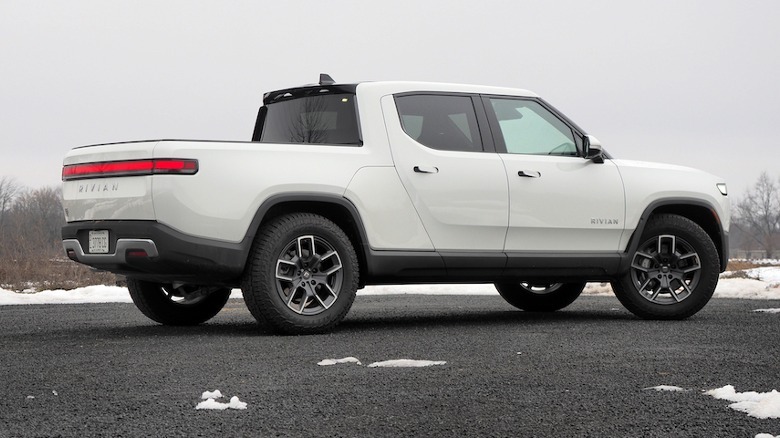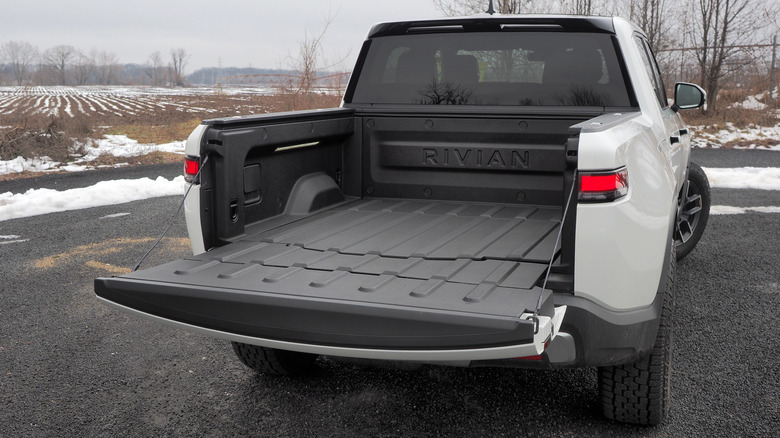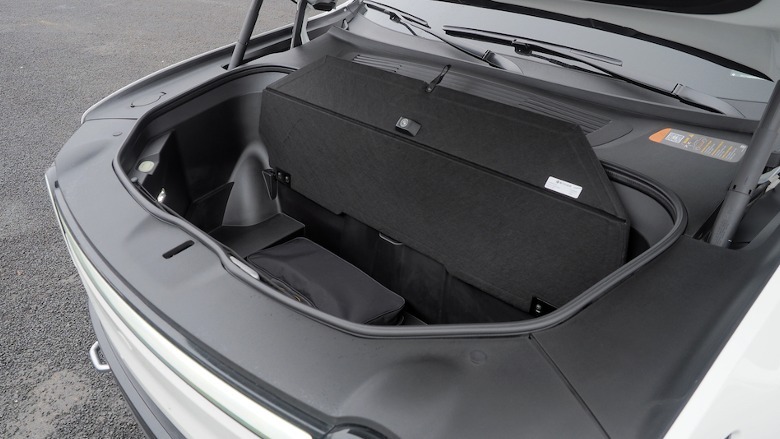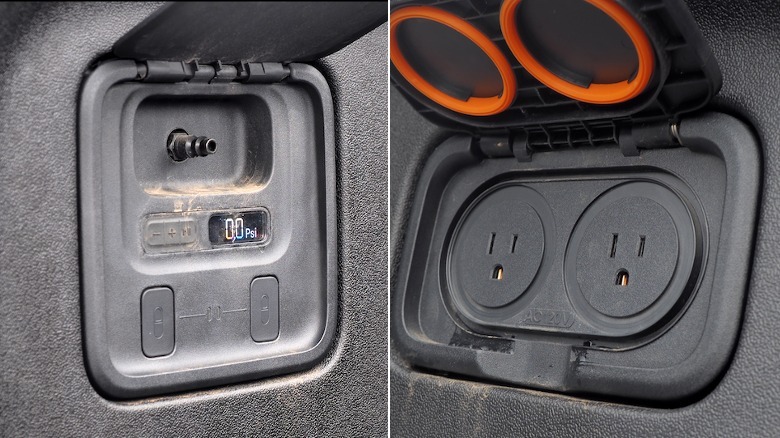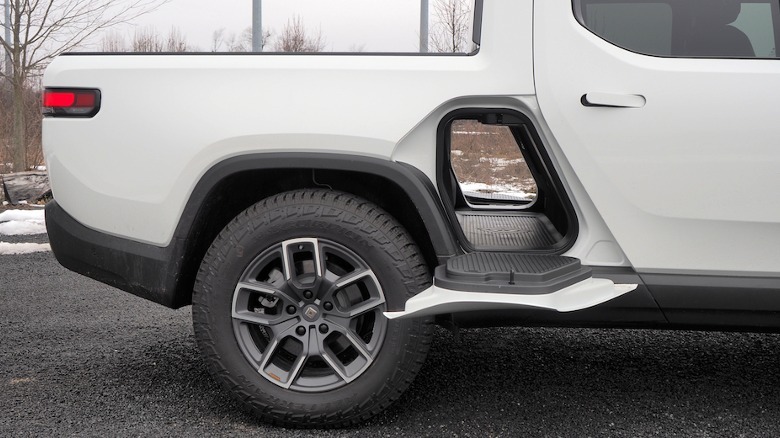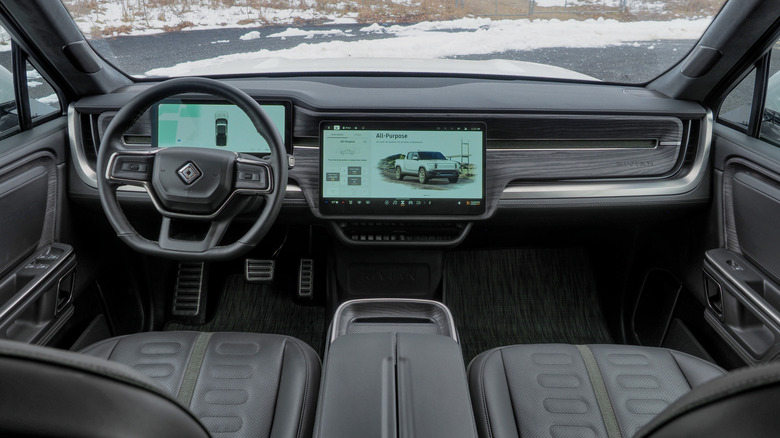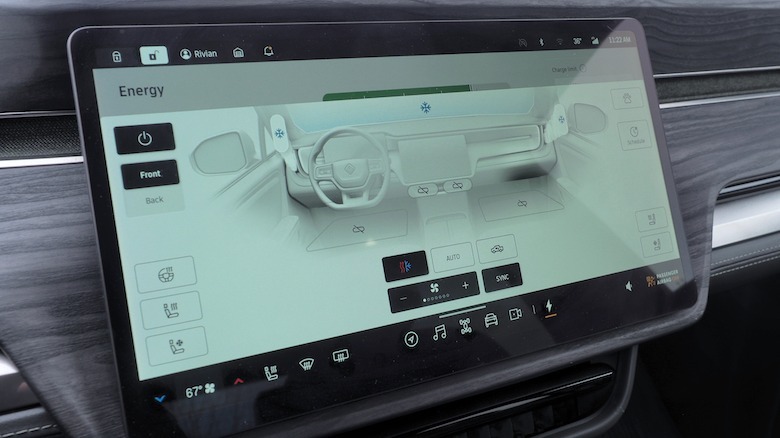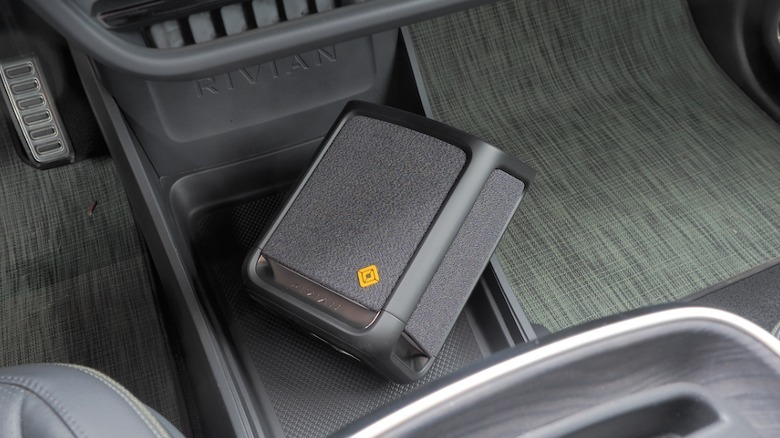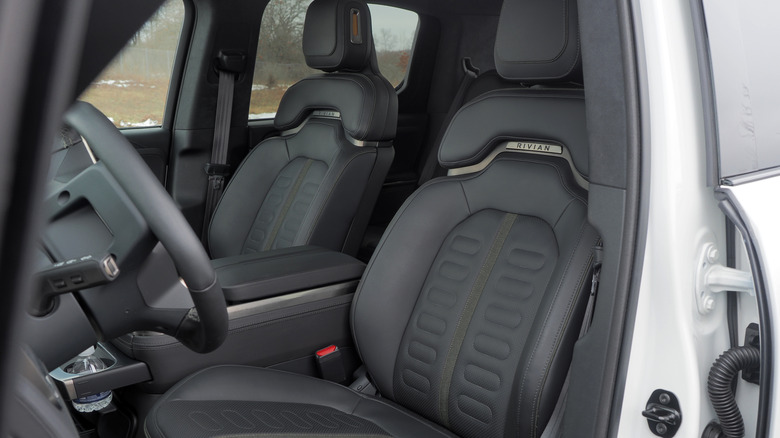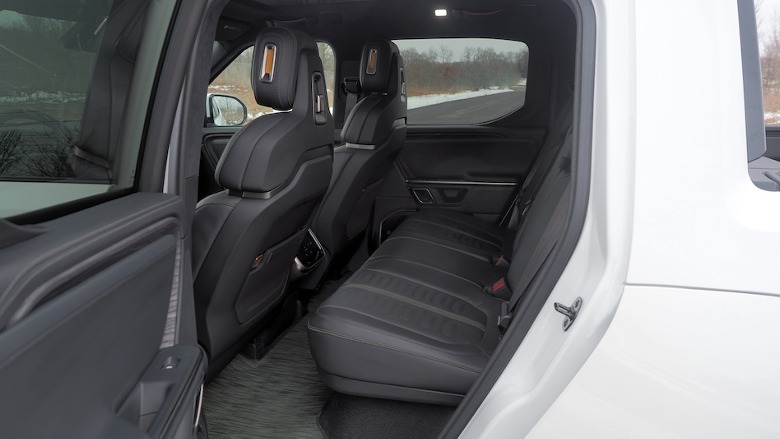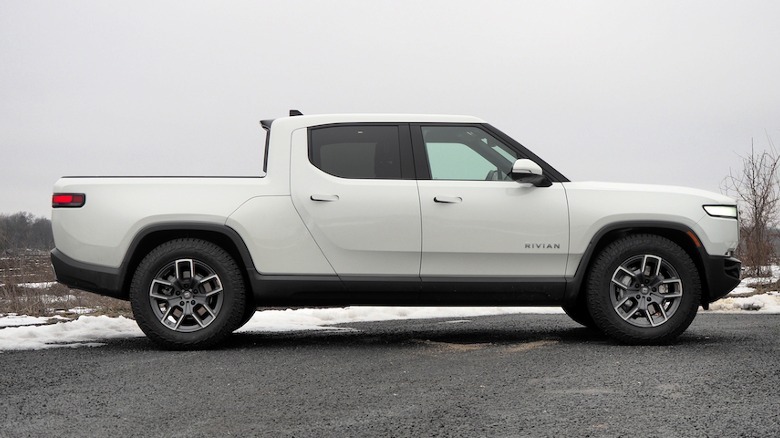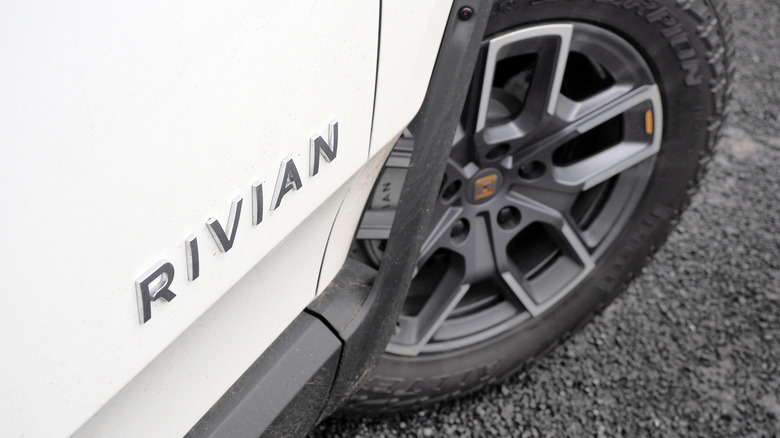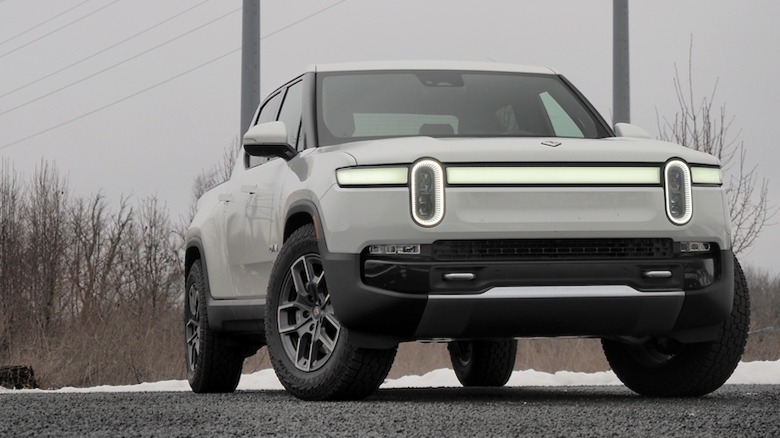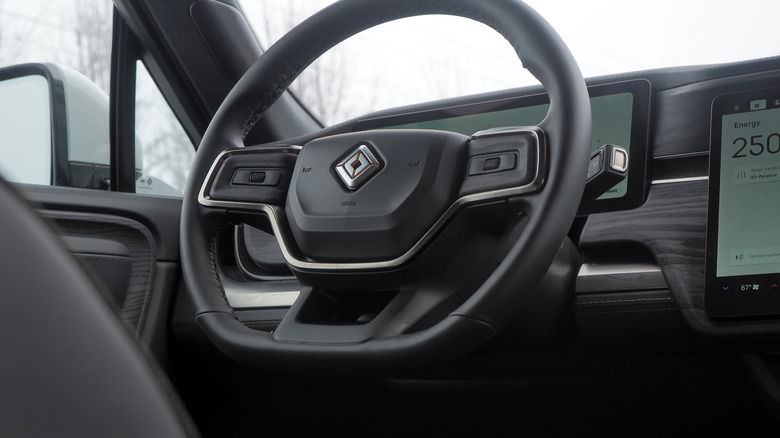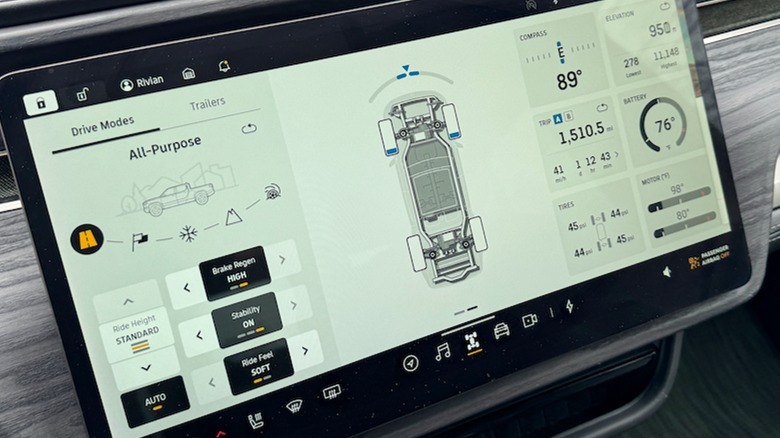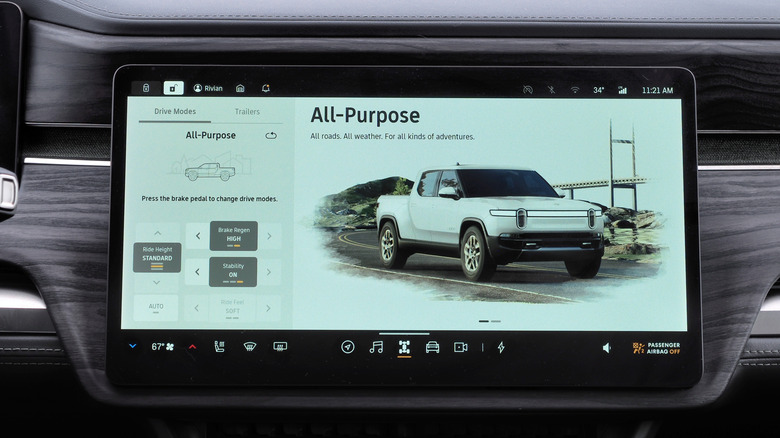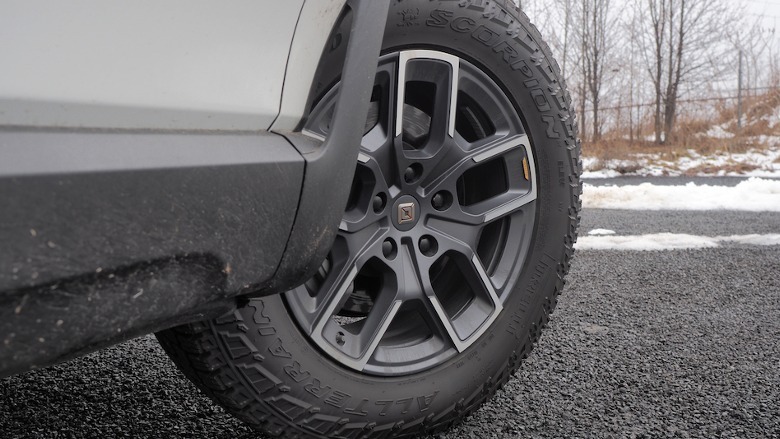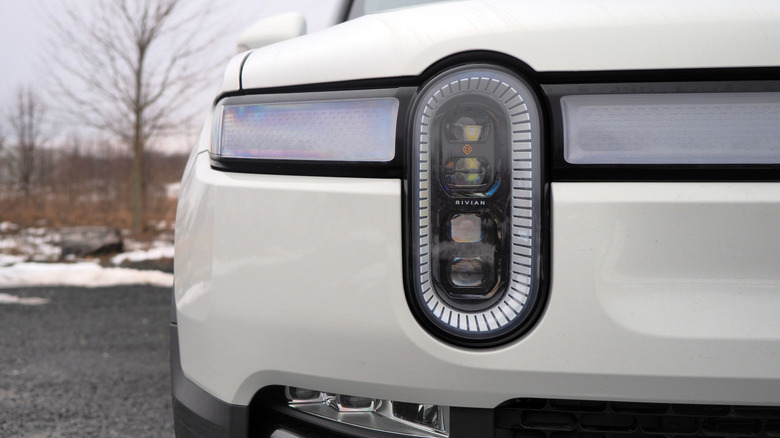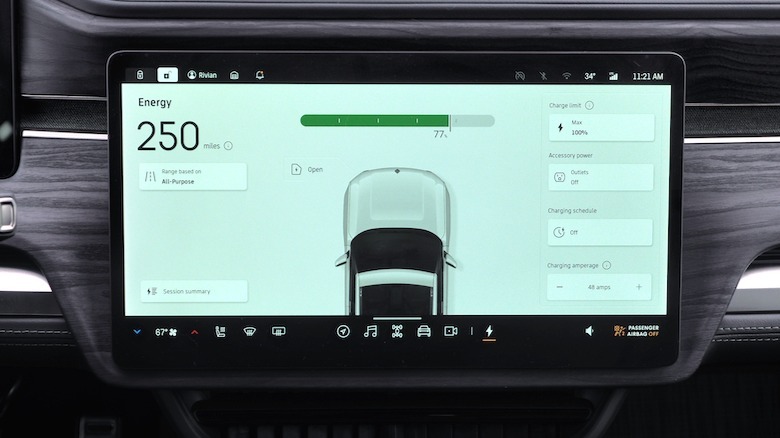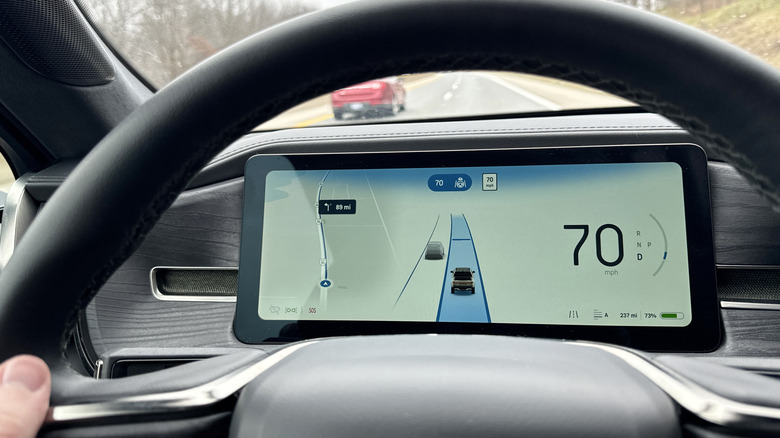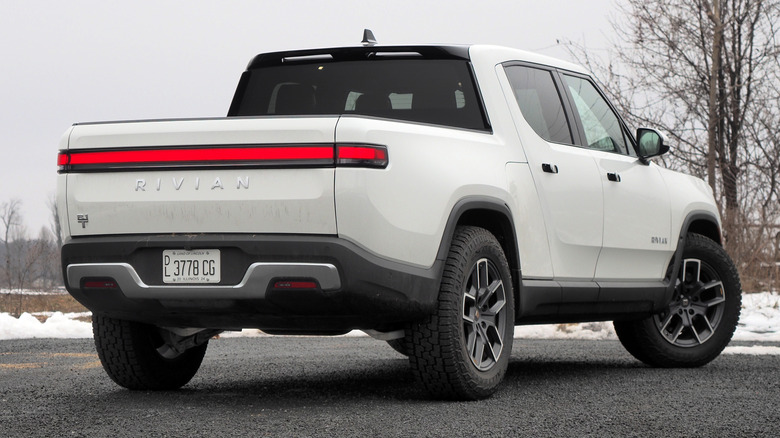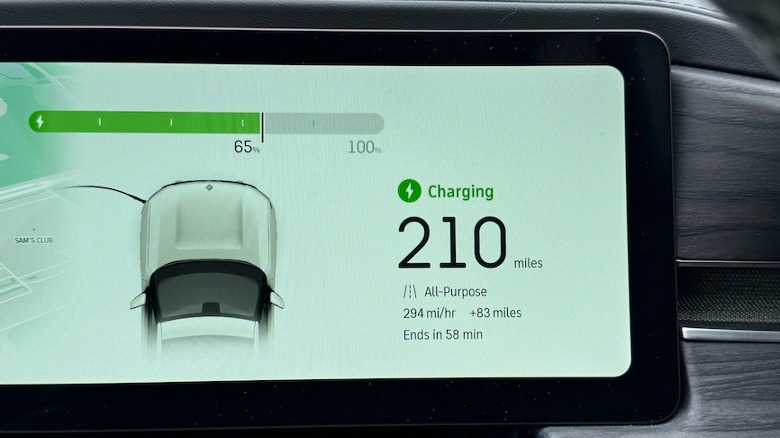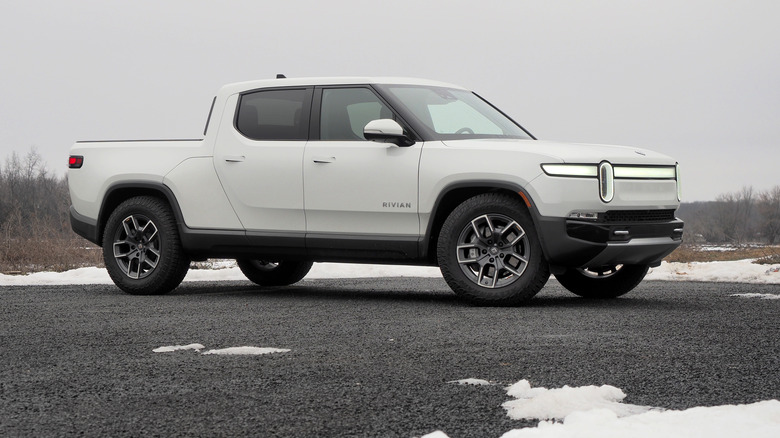2024 Rivian R1T Dual-Motor Review: Better Range, Better Value
- Little noticeable performance sacrifice versus quad-motor R1T
- Lower price means (some) trims are tax credit eligible
- Practical and capable with a high tow rating
- Cabin holds up to similarly-priced luxury cars
- Still not cheap
- Some software/infotainment frustrations linger
- Off-road spec sacrifices a chunk of range
It's a familiar EV strategy: first, you wow them, then you reel them in. Rivian certainly didn't originate that approach — Tesla only offered the high-end Model S and X for many years before the more affordable Model 3 arrived — but its R1T electric pickup beat rival trucks to market and with a comprehensive spec list befitting a fledgling automaker hoping to make a splash.
The original R1T didn't just have an early arrival in its favor: its four electric motors and wild quantities of torque made it as much an off-road beast as it was an asphalt-chewing speed machine. The downside — or, at least, the biggest downside — was the cost, with even a base-spec R1T quad-motor currently starting at $87,000. Now, Rivian has a more affordable dual-motor version of the R1T (and the R1S SUV) to address that.
Affordability runs on a sliding scale, of course: priced from $73,000 (plus destination), the R1T dual-motor is still comfortably in the luxury car segment. Then again, so is most of its electric truck competition.
Despite early promises, a Cybertruck will set you back at least $76k if you want one this year; consumer versions of Ford's F-150 Lightning officially start at $55k, but good luck finding one within $10k+ of that. Chevrolet's upcoming Silverado EV will start at $75k, and the behemoth GMC Hummer EV currently kicks off north of $96k. The pickup truck may have come to symbolize American mobility, but you'll still need to be fairly upwardly mobile if you want one that runs on batteries, not gas.
Neither outlandish nor offensive to the eye
In the strata of electric truck design, the R1T falls somewhere in the middle. Unlike the F-150 Lightning, which is almost identical to Ford's gas and diesel pickups, the Rivian does stand out as something unusual in the truck world. The distinctive light bars front and rear help, there. Still, it's far from the love-it-or-hate-it Cybertruck.
The clean silhouette is practical, too. Rivian's power front hood reveals a useful 11.1 cu-ft of storage space (bigger than in a lot of EVs, though not quite as easily accessed as the F-150 Lightning which lifts its grille, too.
The 4.5-foot bed — the only length Rivian offers currently — has a power tailgate and plenty of useful tie-down points, along with a built-in air compressor and two 120V outlets. A manual tonneau cover is a $1,800 option.
Still unmatched is the R1T's Gear Tunnel, a truck-spanning compartment between the cab and the rear wheels. Accessed by a drop-down door on either side — which are each sturdy enough to use as steps to access the trunk or optional roof rails — it can hold a further 11.7 cu-ft and also has power outlets.
One touchscreen to rule them all
Inside, Rivian is a proponent of the touchscreen-first approach. A 16-inch display in the center handles navigation, multimedia, and vehicle settings like drive mode, as you'd expect; it also adjusts the HVAC system, down to the airflow from the motorized vents. A second, smaller display for the driver shows speed, a map, and driving metrics.
Like a number of EVs, there aren't dedicated controls for adjusting the steering wheel and side mirrors: that's accessed through a menu, and tweaked using the steering wheel buttons and dials. There are, at least, dedicated seat adjustment controls, and pressing any of those summons the wheel/mirror menu. As a workaround it's functional, but actual, physical controls for a lot of this stuff would be even better.
Also absent is Apple CarPlay or Android Auto support, though the R1T's excellent audio system made regular Bluetooth-streamed music sound unexpectedly great. Rivian spreads six USB-C ports around the cabin, though people hoping to charge laptops or other devices might find them relatively low-powered, and prefer to plug their adapter into one of the truck's two 120V outlets. A pull-out Bluetooth speaker under the front armrest doubles as a camp light.
Luxury space with green credentials
Overall, it's a clean and comfortable cabin, with plenty of nooks and cubbies for storage. Those expecting to haul a family more often might want to look to the three-row R1S SUV. Both get Rivian's comfortable seats — with a choice of five color schemes, all of which use vegan leather — and a panoramic glass roof. A heated steering wheel, along with heated and ventilated front seats, are standard.
Rivian has made good use of its OTA (over-the-air) update support, using the R1T's baked-in cellular modem to deliver various new features since the pickup first launched. There are three auto wiper speeds, now, for example (the slowest of which I still found a little too eager), plus the ability to schedule cabin preconditioning. A revamped mobile app launched midway through 2023, while the Gear Guard system can now save footage from the truck's various cameras to a USB-C drive.
That OTA system will also be used to expand the R1T's driver-assistance technology. The electric pickup is rated to tow up to 11,000 pounds, for instance, but currently, the standard blind-spot warning system doesn't take into account what's hanging off the tow hitch. That'll apparently be addressed — along with an expansion of the other ADAS — in a future update.
More than just half the motors
The original R1T wowed with its a-motor-for-each-wheel approach, capable of independently controlling torque at each corner. For the dual-motor version, there's a single electric motor for each axle, and the automaker uses brake-based torque vectoring to push their torque to the left or right wheels.
Rivian didn't just chop out two electric motors and call it a day. In fact, the differences between the original quad-motor R1T and this dual-motor version are considerable, debuting as it does Rivian's Enduro next-generation motor. Developed and produced in-house, Enduro promises to be cheaper and more flexible to build, more efficient, and more resilient to the sort of component shortage bottlenecks which impacted the company's early production.
Incidentally, don't hold out hope for a single-motor version of the R1T (or the R1S, for that matter). According to Rivian CEO R.J. Scaringe, the flagship positioning of the R1 series wouldn't fit with a cheaper, single-motor configuration. That's far more likely to happen with the upcoming R2 series, the automaker's vision for more mass-market EVs expected from around 2026.
This is still a wildly powerful pickup
There are two versions of the R1T dual-motor: regular and, for $5k more, the Performance upgrade. The former's drivetrain is tuned for 533 horsepower and 610 lb-ft of torque, whereas the latter gets a bump to 665 horsepower and 829 lb-ft of torque.
Those numbers are down from the quad-motor R1T, certainly — which has 835 horsepower and 908 lb-ft to play with — but the truth of the matter is that these are still indecently rapid trucks. Compared to the quad's 3.0 second 0-60 mph time, the R1T dual-motor in Performance form takes just 3.5 seconds. Even the "slowest" version will still do that in 4.5 seconds.
Put your foot down and the R1T whooshes. An easy-to-modulate accelerator pedal along with three levels of regenerative braking intensity makes both one-pedal city driving a laid-back affair, and sudden sports-car-shaming blasts of speed almost too easy. The Performance trim adds a dedicated Sport mode to the regular All-Purpose, Snow, and All-Terrain, along with a Soft Sand mode, but frankly, in any setting, the electric truck guarantees you won't be lacking punch.
For the road, or beyond it
Hit the corners, and the air suspension does a surprisingly good job of keeping things level, too. That'll lower automatically at highway speeds (or in Sport mode) for greater efficiency or can be manually lowered and raised depending on road conditions. Rivian's standard wheels are 21-inches and road-focused (with 22-inch versions optional). However, with the $3,850 All-Terrain Upgrade, they're swapped for 20-inch off-road alloys shod in 3-Peak Mountain Snowflake tires (and a full-size spare taking up the under-bed storage).
In snowy, icy Michigan, that was a welcome upgrade. The R1T is surefooted and capable, shrugging off everything from slush through to ice. In All-Purpose mode, there could be some easily modulated (and, frankly, entertaining) wiggle as the dual motors' excesses of power overwhelmed the 3-Peaks' immediate grip. Switching to Snow mode axed that.
Absent from the drive mode carousel is the R1T quad-motor's Conserve setting, another side-effect of the Enduro motor switch. Unlike the original R1T (and R1S), which could only disable two of the four motors in that dedicated mode, the dual-motor versions can disconnect the rear axle on the fly. It means the R1T dual-motor can selectively switch to a more economical single-motor configuration when more power isn't needed, such as highway cruising, and in any of the truck's drive modes bar Sport.
Three batteries but some limits on flexibility
It's a change that pays dividends in range. The cheapest R1T dual-mode configuration comes with Rivian's 105 kWh (gross) Standard battery pack rated for up to 270 miles; $6,000 more gets you the 135 kWh Large pack, rated for up to 352 miles; the 149 kWh Max pack is $16,000, and rated for up to 410 miles.
Wheel and tire choice also impact the total potential range. If you want that full 410-mile estimate from the Max pack, for example, you'll need to stick with the standard 21-inch road wheels. Switching to the 22-inch versions means sacrificing 30 miles of range; the grippier rubber on the All-Terrain upgrade's 20-inch wheels sees that dip even further, to 355 miles. With the mid-sized Large battery and the least-efficient wheels — as on this particular review R1T — you're down to 307 miles.
There are some configuration foibles, too. You can't get the All-Terrain upgrade with the Standard battery (and given the impact that would have on range, it's probably a wise decision), but more notably, you can't have the Standard pack with the Performance trim. Instead, the smallest battery option there is the Large pack. At $84k, that configuration nudges the R1T past the $80k price cap for the U.S. federal tax credit; stick underneath it, and the R1T is eligible for up to $3,750.
The realities of Rivian range
Range is, obviously, heavily impacted by how you're driving, on what roads and at which speeds, and environmental conditions. Cold weather in particular does electric cars no favors, and with average temperatures during my testing at around the 35 Fahrenheit mark, this R1T dual-motor review truck with the Large battery and All-Terrain upgrade had its work cut out for it.
A two-hour highway jaunt at around 70 mph saw the truck clock in at 2.0 miles per kWh. Rivian doesn't disclose how much of its battery capacity is usable, but even if the whole of the Large pack was accessible, that would work out to around 270 miles of total range. Factor in urban driving, and power consumption unsurprisingly improves.
There was also a fair amount of road noise from the off-road tires, though Rivian's soft suspension setting did do a good job of isolating shoddy Michigan asphalt. The firm setting is definitely best saved for smoother surfaces.
Rivian's Highway Assist — part of the standard Driver+ suite that includes adaptive cruise control with lane-keeping assistance and departure warnings, blind spot and rear cross-traffic alerts, 360-degree parking collision alerts, automatic emergency braking and dynamic brake support, and forward collision warnings — builds on the regular adaptive cruise with lane-keeping. It's a hands-on-wheel system and currently lacks the automatic lane-change maneuvers offered by rival systems like GM's Super Cruise.
Public charging is still complicated
With a Level 2 home charger, expect 16-25 miles of range per hour depending on amperage. The R1T also supports up to 220 kW DC fast charging, but cold conditions demonstrated temperature's hefty impact on speed. In theory, a fast charger — currently using the CCS connector, though Tesla Supercharger access is coming – could add 140 miles of range in about 20 minutes.
In practice, after a slow start, I saw a 188 kW peak at a 350 kW Electrify America station. After 24 minutes, 54 kWh had been delivered, taking the R1T to 75% charge. A second session, which hit a 150 kW peak, took 32 minutes to deliver 47 kWh and take the R1T to 80%. That's an average of 1.8 kWh per minute or about half the R1T's theoretical maximum.
Battery warming starts when a fast charger is selected in the navigation system (you can't manually begin that process, currently, if you're headed for a charger not in Rivian's database), the idea being that, by the time you plug in, it'll be in its 68-77 Fahrenheit peak efficiency range. Had preconditioning been running twice as long as the 15 minutes it took to drive to the Electrify America station, there's a much stronger chance that I'd have seen faster speeds on first plugging in.
There's also the charging curve to consider: EV batteries charge faster until they get to around 80%, at which point the rates slow dramatically so as to prevent potential damage. It wouldn't be unfair to blame commonplace infrastructure issues too. The R1T will flash up a message if the station it's plugged into is the cause of slow speeds, but more transparency about possible reasons for a sluggish charge would be welcome reassurance.
2024 Rivian R1T Dual-Motor Verdict
An electric vehicle is still not the right choice for everyone, and that holds true for electric trucks. The R1T can out-tow many internal combustion rivals, and out-accelerate them, and all with a cabin that suits its luxury car pricing. At the same time, range anxiety and charging infrastructure are still legitimate concerns, and — though Supercharger access will help, and Rivian is building out its own Level 2 and Level 3 network — many pickup buyers simply aren't set up to make that EV transition yet.
That's an issue that impacts more than just Rivian, of course, and equally true is that it's naive to write off the whole electric truck segment simply because they're not for every driver. Where the R1T dual-motor succeeds is in its application of imagination: not just embracing a new energy source, but then capitalizing on the potential benefits a battery-electric platform offers with usability, cargo, and performance advantages ICE trucks simply can't match.
Would it be nice if all that came cheaper? Sure. Are there times when Rivian leans a little too hard into the tech? Maybe, yes. Yet just like the Lucid Air Pure feels like an imperfect but still aspirational vision of electric luxury, the R1T dual-motor embodies electric practicality in a way that's tough to resist. We're still some way from the age of mass-market EV trucks, but if they deliver half as much as the Rivian R1T then that's something to look forward to.
